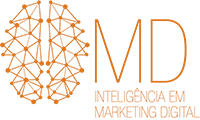
GenSportsPro Professional Sports (GSP-PS) brings all the benefits of the amateur tests (check them here), plus some extra features that make it our most comprehensive test, offering unique characteristics and even better results.
Among the extra features that make it the best sport genetic test out there, we highlight:
-
Whole genome sequencing (650,000 polymorphisms)
-
Updates for new phenotypes for a 12-month period, no extra cost and no need to take a new sample - ever
-
Customized reports, shortened and driven to different professionals (nutritionist, physical preparation coach and physiotherapist), in addition to the full-lenght report
-
Support from our expert team for issues about the results or their application in the training routine of athletes
What is it?

Why do it?
Firts of all, the team's staff (doctors, physiotherapists, physical preparation coaches and nutritionists) will have access to detailed information on the athletes's genotypes, allowing them to make a customized plan to each player, so he/she can be at his/her very peak, considerably reducing the chances of non-contact injuries and improving the overall performance.
To know the deficiencies and potentialities of the team members may have a huge financial impact on the team - figure how much you will lose in case one of your star players can't compete for 6 months.
Whatsmore, pointing out the type of muscle fibers and inherited genetic characteristics (resistance, speed, power, etc.) may even aid you to guide young athletes' roles or positions in the team, as well as how the coach can better put their qualities to use.

Top benefits
Find out the predisposition to non-contact injuries, severity and average recovery time
Check how and where adjust the training, due to workload, intensity and recovery time
Assess muscle development and power transmission
Understand which foods you should eat/drink to improve your sport performance
Suggest an increase of the intake of certain nutrients and vitamins
Point out the decrease or restriction of foods that don't match your genotype
How it's done

1.
Buy the kit here on the site and get it anywhere in the country

2.
Take the sample wherever you want - quick and painless

3.
Send us the sample and consent using our packaging


4.
Your sample goes through cutting edge equipment for genetics analisis


5.
A team of experts prepares a customized report, based on your genetics
6.
You either get the report by email or download it from our site

7.
Talk to your doctor, coach or nutritionist, adjust your training and improve your results

8.
Gain quite an edge over competitors, increasing your victory chances

-
Elastin: tissue recovery
-
CCL2 and IGF2: muscle damage response
-
HGF, GDF5 and MYF5: muscle development
-
COL5A1, TNC and COL1A1:0 tendinopathies and ligament tear
-
TITINA: muscle power transmission
-
SOX15, LIF and MMP3: muscle regeneration
-
ADRB2, ADRB3 and PPARG: mcronutrient metabolism
-
FABP2, FTO, LPL and COMT: saturated fat sensitivity
-
IL6 e TNF: Omega 3 need
-
MCM6: lactose intolerance
-
HLA_DQ: gluten intolerance
-
GSTT1 and GSTM1: antioxidant capacity
-
MTHFR: vitamin B need
-
VDR and FOK: vitamin D need
-
SOD, CAT and GPX1: vitamins A/C/E needs
-
CYP1A2: caffeine sensitivity
-
ACE and AGT: salt sensitivity
Plus:
-
Muscle cramps
-
Stress fracture
-
Anterior Cruciate Ligament (ACL) tear
-
Achilles tendinopathy
-
Meniscus injuries
-
Ankle sprain
-
Muscle fibres conversion
-
Increase of VO² Max and HIIT
-
Muscle damage - free radicals
-
Post-exercise lactate
-
Muscle oxygen consumption
-
Leg power (vertical jump))
-
Altitude hypoxia
-
Body composition (elasticity, muscle fibres, bone mineral density, etc.)
-
Supplementation (antioxidants, iron, green tea, etc.)
-
And many others!
The science
GSP-PS was developed through years of observation and study of athletes by world-known researchers in the areas of genetics, biomedicine, molecular biology, sports medicine, nutrition and physical preparation coaches. Its results and reliability are corroborated by a series of scientific papers.
There are about 200 markers mapped and analyzed nowadays, specifically for sports, in areas like speed, strenght, power, resistance, predisposition to injuries, nutrition and performance - GSP-PS tests a number of genetic markers (SNPs) directly related to physical conditions, such as:
Some scientific papers on the influence of genetics on sports:
• Nine genetic polymorphisms associated with power athlete status – A Meta-Analysis. Jan Weyerstraß, Kelly Stewart, Anke Wesselius, Maurice Zeegers. Journal of Science and Medicine in Sport 21 (2018) 213–220
- Link
• ACTN3 R577X and ACE I/D gene variants influence performance in elite sprinters: a multi-cohort study. Ioannis D. Papadimitriou1, Alejandro Lucia2, Yannis P. Pitsiladis, et al. BMC Genomics (2016) 17:285
- Link
• FTO genotype and weight loss in diet and lifestyle interventions: a systematic review and meta-analysis. Lingwei Xiang, Hongyu Wu, An Pan, Bhakti Patel, Guangda Xiang, Lu Qi, Robert C Kaplan, Frank Hu, Judith Wylie-Rosett, and Qibin Qi. Am J Clin Nutr 2016;103:1162–70
- Link
• Applying Personal Genetic Data to Injury Risk Assessment in Athletes. Gabrielle T. Goodlin, Andrew K. Roos, Thomas R. Roos, Claire Hawkins, Sydney Beache, Stephen Baur, Stuart K. Kim. PLOS ONE | DOI:10.1371/journal.pone.0122676 April 28, 2015
- Link
• Genetic variation and exercise‑induced muscle damage: implications for athletic performance, injury and ageing. Philipp Baumert, Mark J. Lake, Claire E. Stewart, Barry Drust, Robert M. Erskine. Eur J Appl Physiol (2016) 116:1595–1625
- Link
• COL5A1 gene variants previously associated with reduced soft tissue injury risk are associated with elite athlete status in rugby. Shane M. Heffernan, Liam P. Kilduff, Robert M. Erskine, Stephen H. Day, Georgina K. Stebbings, Christian J. Cook, Stuart M. Raleigh, Mark A. Bennett, Guan Wang, Malcolm Collins, Yannis P. Pitsiladis and Alun G. Williams. BMC Genomics 2017, 18(Suppl 8):820. DOI 10.1186/s12864-017-4187-3
• Elastin: a possible genetic biomarker for more severe ligament injuries in elite soccer. A pilot study. Artells R, Pruna R et al. Muscles, Ligaments and Tendons Journal, 2016 Sept. 17;6(2)
- Link


